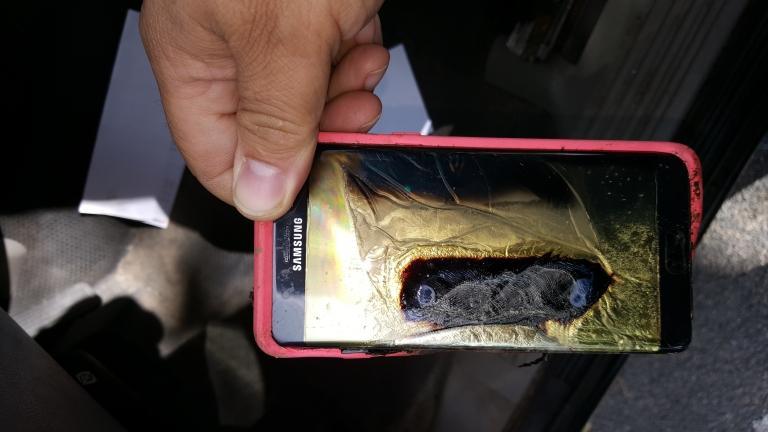Samsung confirms battery faults as cause of Note 7 fires
- Published
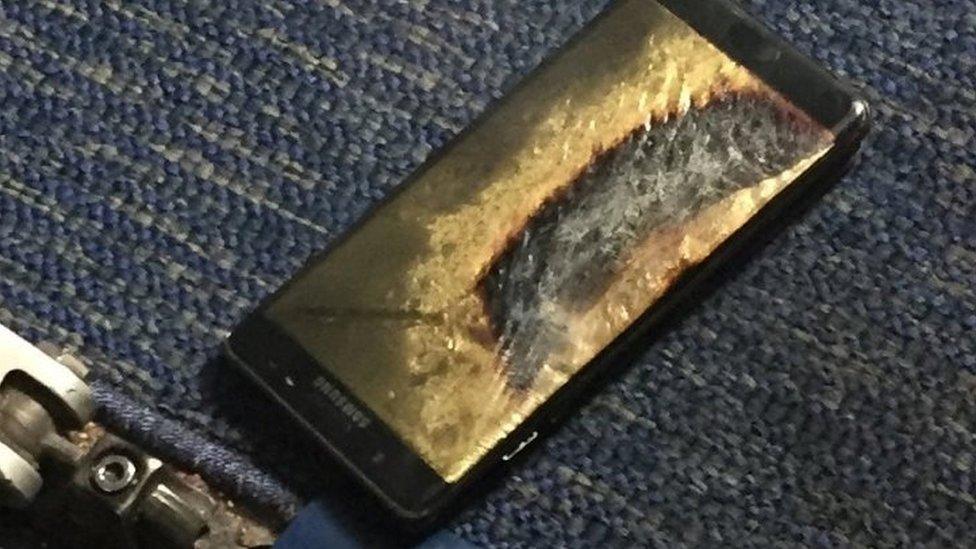
The Galaxy Note 7 had been well-reviewed but dozens of the phones overheated
Samsung's probe into its Galaxy Note 7 fiasco has found that the overheating and burning of the phones was caused by faults with their batteries.
The firm had axed its iPhone rival in October last year after an earlier botched recall and re-release.
The recall is thought to have cost $5.3bn (£4.3bn) and was hugely damaging for the South Korean firm's reputation.
On Monday, Samsung said that neither software nor hardware were at fault, only the batteries.
Internal and independent investigations "concluded that batteries were found to be the cause of the Note 7 incidents", the South Korean technology giant said in a statement, external.
So what went wrong?
The company said that errors both in design and manufacturing affected batteries by two different manufacturers.
According to the findings, the problems centred on insufficient insulation material within the batteries and a design that did not give enough room to safely accommodate the batteries' electrodes.
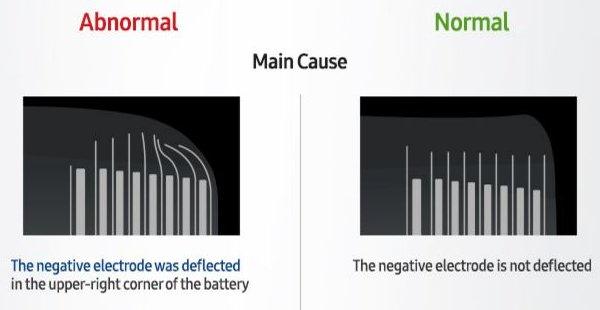
Some batteries were affected by a design error ...
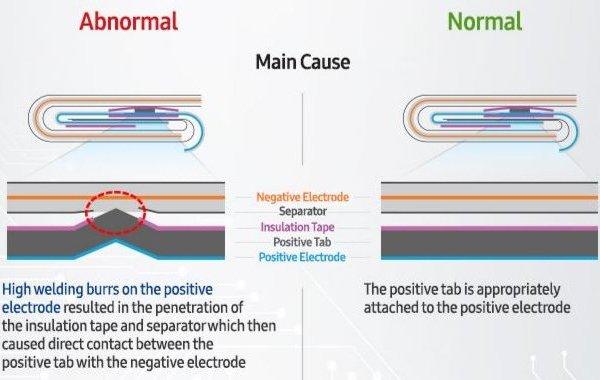
while others suffered from insulation problems
Samsung said it was "taking responsibility for our failure to ultimately identify and verify the issues arising out of the battery design and manufacturing process".
The smartphone giant did not name the battery suppliers during their Monday presentation, though last year had identified them as their affiliate Samsung SDI and Chinese company Amperex Technology.
Samsung said it did not plan to take legal action and that it accepted responsibility for asking the suppliers to meet certain specifications.
"Samsung has done what they needed to do for now but the true test will need to happen over time," analyst Bryan Ma of IDC told the BBC.
"If successive products can be delivered consistently without incident in the next year or so, then they will be in a better position to regain consumers' trust."
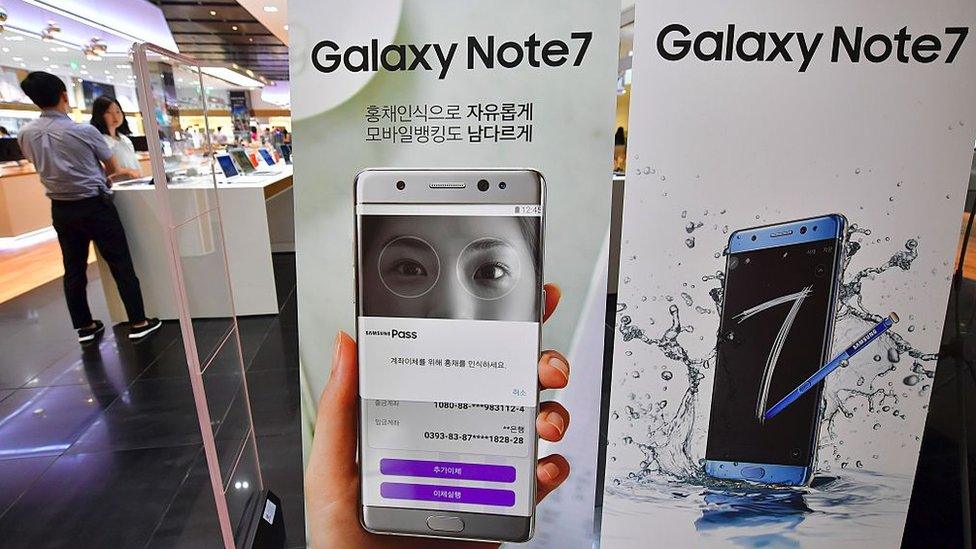
Some reviews had described the Note 7 as being the best Android handset to date
Launched in August 2016, Samsung's Note 7 device was marketed as a large-screen top-end device and positioned as a rival to Apple's iPhone.
But in September, Samsung had to recall about 2.5 million phones after complaints of overheating and exploding batteries.
The firm insisted that all replaced devices were safe. However, that was followed by reports that those phones were also overheating.
Lessons to learn
The company said there would be no repeat of the fires in future devices such as the upcoming S8.
"We look forward to moving ahead with a renewed commitment to safety. The lessons of the past several months are now deeply reflected in our processes and in our culture."
The firm also said it would not unveil its upcoming Galaxy S8 phone at the Mobile World Congress in Barcelona, as had been expected, suggesting the flagship model's launch may be later in the year.
The head of the firm's smartphone business, Koh Dong-jin said the phone would not get a launch event at the event in Barcelona in February unlike previous Galaxy S smartphones.

Samsung Note 7 - how events unfolded
24 August: The first report of a Note 7 "exploding" appears in the news, soon followed by images of more smouldering Samsungs.
2 September: Samsung announces a voluntary global recall of 2.5 million Note 7 phones, citing faulty batteries. It offers refund or replacement.
8 September: US aviation authorities and many airlines tell passengers not to turn on or charge the phone on planes.
9 September: The US Consumer Product Safety Commission tells people to stop using the phone and on 15 September issues a formal recall.
5 October: Reports emerge of a replacement Note 7 overheating on a US flight. In the following days more reports appear and major US carriers stop selling the device or issuing replacements.
11 October: Samsung permanently stops production of the Note 7. It tells people to turn them off and stop using them.
Since then: With some users still hanging on to their phones, Samsung pushes out updates that limit or prevent charging.

- Published18 January 2017
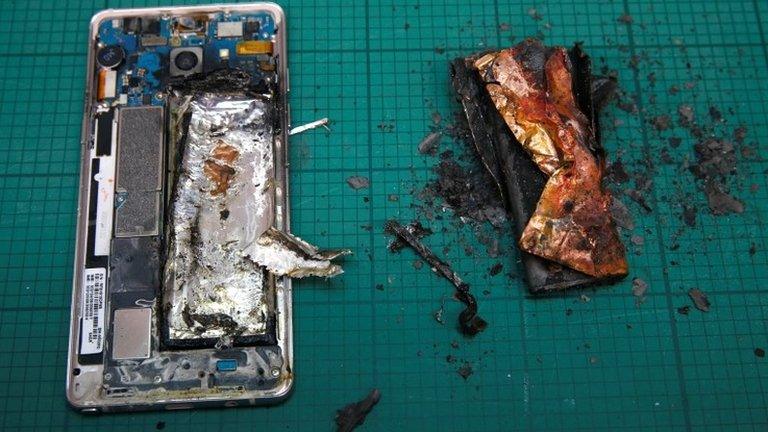
- Published19 January 2017

- Published11 October 2016
